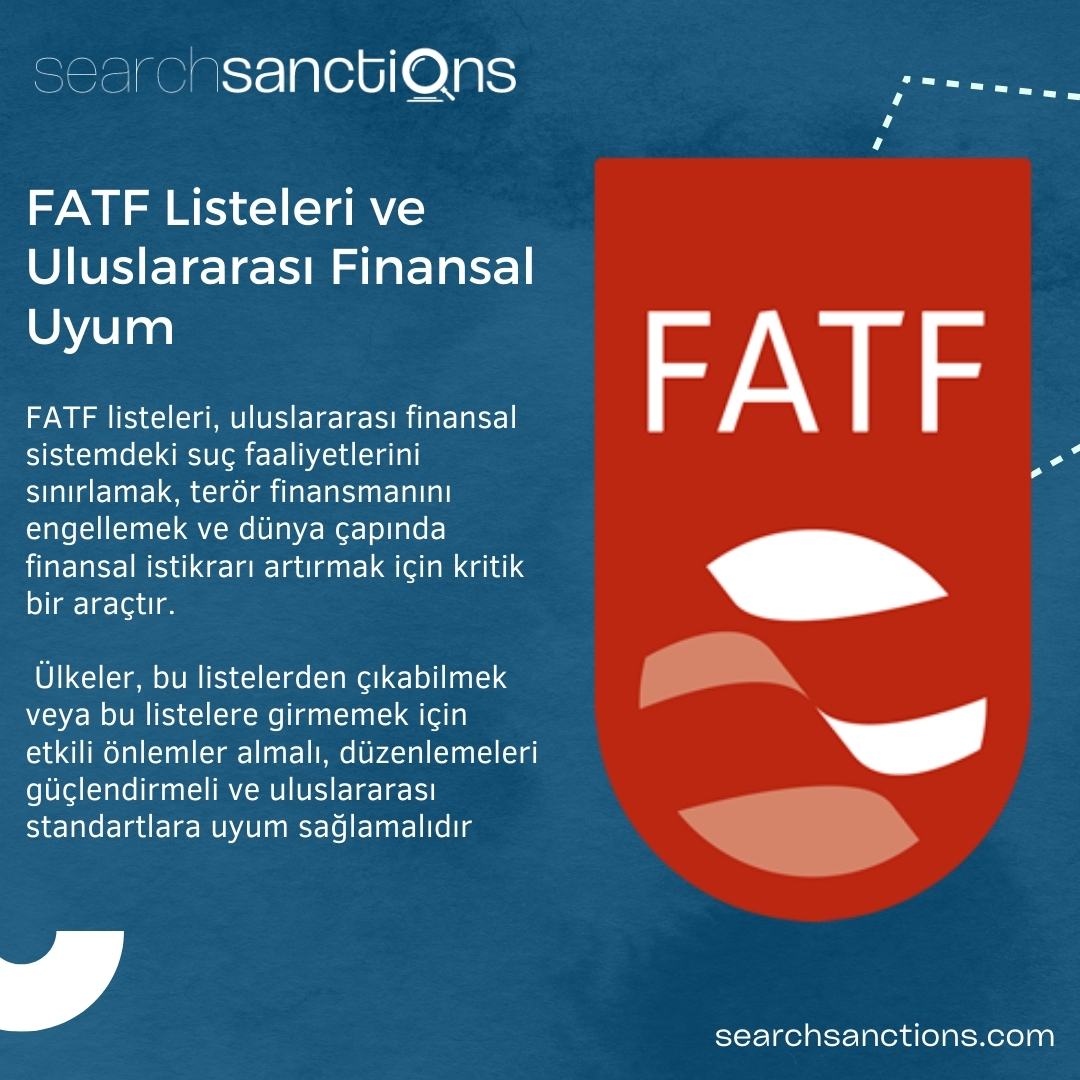FATF Lists and International Financial Compliance: Money Laundering and Terrorism Combating Financing
The Financial Action Task Force (FATF) was established to protect the international financial system and to prevent money laundering (AML) and terrorist financing (TF) activities worldwide. The FATF aims to strengthen the financial system, improve regulation and encourage financial institutions to combat money laundering and terrorist financing through cooperation among member and partner countries. In this article, we will focus on the FATF lists, their purpose and importance.
What is FATF?
FATF is an organization established in 1989 as a result of the G7 summit and has a global leadership in the fight against money laundering and terrorist financing. The FATF has developed various policies and standards to stabilize the financial system, prevent money laundering and prevent the financing of terrorism.
FATF Listings:
Money Laundering and Terrorist Financing Blacklist (FATF Blacklist):
The FATF evaluates countries and may blacklist countries that take inadequate measures or do not cooperate on AML and TF issues. For the international community, this means restricting financial transactions with these countries.
Gray List (FATF Grey List):
The gray list is used to indicate concerns about potential risks and to encourage countries to regulate and cooperate more effectively. Countries on the gray list can be blacklisted if they do not take certain measures.
High-Risk and Other Monitored Jurisdictions:
This list includes countries that require special attention in the fight against AML and TF. These countries are considered high-risk jurisdictions that require increased surveillance and measures by the international community.
Importance of FATF Lists:
International Cooperation and Coordination:
FATF lists promote cooperation and coordination between countries on AML and TF. This strengthens the international financial system and limits criminal activity.
Financial Stability:
FATF listings enhance stability by protecting the financial system. Effective measures against proceeds of crime and terrorist financing enhance the credibility of the financial system.
Worldwide Trust:
Countries' presence on FATF lists increases confidence in the financial system worldwide. This is important for investors, financial institutions and other stakeholders.Consequences of Inclusion on FATF Lists:
Financial Isolation:
A blacklisted country may lose its links to the international financial system. This can have significant implications for trade and investment.
Regulatory and Supervisory Pressure:
Gray-listed countries may be under greater regulatory and supervisory pressure. This encourages countries to take more effective measures.
International Image Loss:
Inclusion on FATF lists damages a country's reputation internationally. This can be a source of concern for investors and international business partners.
FATF lists are a critical tool to limit criminal activity in the international financial system, prevent terrorist financing, and promote financial stability worldwide. Countries need to take effective measures, strengthen regulations and comply with international standards to be able to exit or avoid being placed on these lists. Moreover, following the FATF's continuously updated standards is important to create a safer financial system among financial institutions and countries.
Request Demo
You can contact us as to our services, integration processes, request demo or customized solutions.

